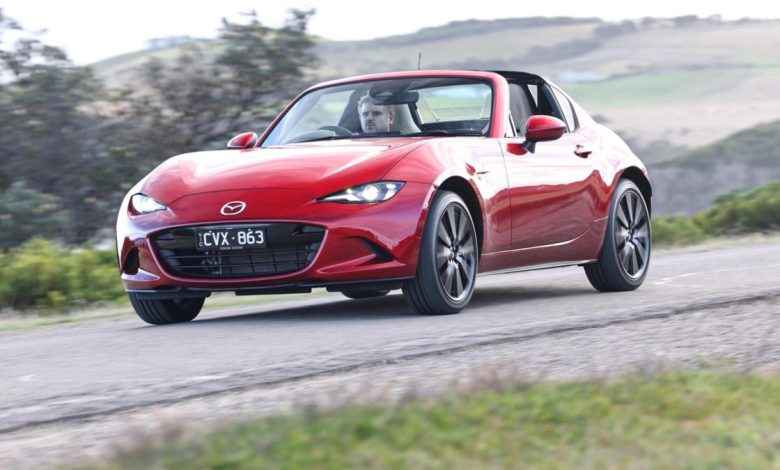Mazda to admits engine and crash test ‘irregularities’

Mazda has halted deliveries of certain models in Japan after it was found to have altered the engine’s certification test results while correcting the crash test data of another popular model.
UPDATE, 11.30am, June 4: Mazda Australia has confirmed that the testing irregularities do not affect models delivered locally. Our story below has been amended to reflect this.
This was questioned by Japanese government officials after “irregularities” were found in the engine management software for Mazda MX-5 RF from 2018 onwards, a plus Mazda 2 from 2021 onwards.
Get the news with the 7NEWS app: Download today
“In the certification test for the power of the gasoline engine on board [petrol] engine, the test was to be performed using engine management software in the same condition as a mass production vehicle, but was conducted using management software in which the ignition timing adjustment function was partially disabled,” said the car manufacturer.


“We will immediately conduct the tests again under the same conditions as mass production vehicles and prepare for re-examination by the type designation authorities,” Mazda said of the MX-5 RF.
While Mazda Australia exclusively sources the MX-5 RF from Japan (and imports the Mazda 2 from Thailand), the automaker has since said the irregularities only affect Japanese-market models.
“The type designation irregularities do not apply to Australian Mazda vehicles,” a spokesperson told CarExpert.


The carmaker also admitted to falsifying crash safety test results for Mazda 6 sedan and station wagon (sold in Japan as the Atenza), as well as Mazda 3 sedan and hatchback (sold as Axela in Japan).
“In a certification test for occupant protection in the event of a frontal collision, an external device was used to trigger a timed deployment of the airbag instead of a spontaneous deployment based on detection of a collision by an on-board sensor,” the company said.
While the affected Mazda 3s were built between August 2016 and February 2019, the Mazda 6 has been affected by the “erratic treatment” since 2014, with the testing discrepancy since corrected in all examples built since April.
Automotive News reports that other Japanese manufacturers, including Toyota, Honda, Yamaha and Suzuki, have also made incorrect claims in past test reports, with Australian delivered Toyota Yaris Cross of course he is affected.




